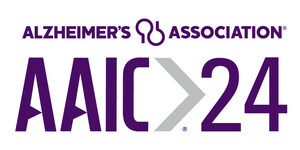G8 Countries Collectively Agree To Goals Including Mirroring The U.S. National Alzheimer's Plan To Find A Cure And Treat Dementia By 2025
-- Alzheimer's Association President and CEO Presented to Global Leaders About Accelerating Research, Advancing Collaboration and Improving Care
CHICAGO, Dec. 11, 2013 /PRNewswire/ -- Alzheimer's Association® President and CEO Harry Johns presented and participated in the first-ever G8 Dementia Summit hosted by the United Kingdom, where world leaders acknowledged that the Alzheimer's and dementia crisis cannot be ignored. All of the G8 countries committed to the goal of identifying disease-modifying therapies or a cure for dementia by 2025, similar to the goal laid out in the National Plan to Address Alzheimer's in the United States. The Summit participants also agreed to "increase collectively and significantly the amount of funding for dementia research to reach that goal."
It was clear that all nations must collectively confront the human and economic costs, and take advantage of the scientific opportunities that hold promise for better diagnosis, treatment and prevention. "The G8 Dementia Summit was an unprecedented opportunity to advance progress internationally - to make Alzheimer's and dementia research a global priority and to promote increased global collaboration. Now we must capitalize on the new connections and increased attention fostered at this landmark event to rid the world of the devastating scourge of Alzheimer's and other dementias," said Johns.
In his remarks during the first panel of the Summit, Johns listed three ways to improve the lives of those with dementia - direct care and support, research investment and collaboration. He argued that while the Alzheimer's Association and its counterparts in the other G8 organizations are on the front lines of this epidemic, they cannot do it alone. Governments and industry must be actively engaged and all those affected must raise their voices.
Johns also raised the theme of data sharing, including the Global Alzheimer's Association Interactive Network (GAAIN™), an open access big-data resource that allows researchers worldwide to accelerate their efforts by sharing information. He also mentioned the International Alzheimer's Disease Research Portfolio (IADRP), a database of global research developed through a partnership between the National Institutes of Health and the Alzheimer's Association. This theme was echoed throughout the day as participants broadly agreed that, in addition to the need for a significant increase in research funding by the G8 governments, information sharing and collaboration are critical to success.
The G8 Dementia Summit was the start of a process aimed at putting dementia at the top of the global health agenda and the top of the agendas of health leaders from around the world. Additional international meetings to examine the progress of research will be held in the coming years, said Dr. Francis Collins, director of the National Institutes of Health. The next gathering will be held on Feb. 10, 2015, in the United States. "We appreciate the continued commitment of Dr. Collins to address the Alzheimer's epidemic," Johns said. "The Alzheimer's Association looks forward to participating in this meeting hosted by the U.S. and additional G8 meetings to accelerate progress and collaborative action. The Alzheimer's Association will also lead a group of Alzheimer's Disease International (ADI) member organizations that will work to accelerate research efforts."
According to a policy brief released last week by ADI, 44 million people worldwide have dementia in 2013. With the aging of the global population, dementia prevalence will continue to rise to an estimated 135 million by 2050. The combination of longer lives and aging baby boomers will magnify the Alzheimer's and dementia epidemic in coming decades.
"This is a global epidemic. The impact on families, governments and national health care systems is immense and it will grow significantly. Governments, industry, associations and all others with a stake in this issue must address this significant global public health threat," said Johns. "Collaboration is critical. Countries, companies, advocacy groups, people with dementia and their families, and the general public must join together to discover answers to this monumental problem."
To support the effort discussed today, the first-ever U.S. National Plan to Address Alzheimer's Disease must be effectively implemented. It has an ambitious goal of effectively treating and preventing Alzheimer's by 2025. An additional $100 million is needed now (in fiscal year 2014) for Alzheimer's research, education, outreach and community support.
"We must remain focused on appropriate additional investment to achieve what the U.S. Alzheimer's Plan — and everyone affected by this disease — seeks: effective treatment and prevention. The cost of waiting is far too high," said Johns. "While its impact — human and economic — is staggering, Alzheimer's is also our biggest health opportunity to positively affect millions of lives and total health costs."
About the Alzheimer's Association
The Alzheimer's Association is the world's leading voluntary health organization in Alzheimer's care, support and research. Our mission is to eliminate Alzheimer's disease through the advancement of research, to provide and enhance care and support for all affected, and to reduce the risk of dementia through the promotion of brain health. Our vision is a world without Alzheimer's. For more information, visit alz.org or call 800.272.3900.





Share this article